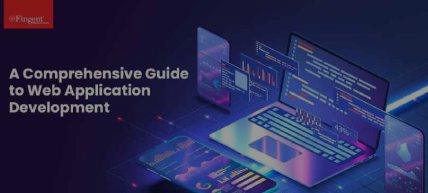Our Services
Fingent's Enterprise Software Solutions
We deliver next-generation enterprise applications on the web, mobile, and desktop, to streamline business processes and enhance customer experience
- Web Application Development
- Mobile Application Development
- Business Technology Consulting
- Business Process Reengineering
The business impact
Enterprise Software Development
Enterprise software development includes creating customized software applications for large organizations or enterprises. These applications are designed to help businesses manage various aspects of their operations, such as finances, supply chain, manufacturing, customer relationships, human resources, and more.
- Automates business workflow
- Improves efficiency and agility
- Enhances customer experience
- Better collaboration
- Provide real-time insights and analytics
- Enables better decision-making
- Improves regulatory compliance
- Increases revenue and profitability
Making a decision
Aligning Your Business Process With Enterprise Software
Enterprise software often comes with its own set of processes and workflows that may differ from the current processes of an organization. But, when an organization zeroes on an enterprise software, businesses have two choices-
- “Change your current process to fit the new enterprise software.”
- “Customize the enterprise software to fit your existing process.”
The decision to change or customize will depend on various factors.
Business needs : Identify the organization’s needs and requirements before choosing the best suited enterprise software.
Existing systems : The software should integrate seamlessly and be compatible with existing systems and applications used by the business.
Compliance : It is crucial to select enterprise software that complies with industry regulations and standards to avoid any legal or regulatory issues.
Automation : Enterprise software should automate key business processes, reducing the workload of employees and increasing operational efficiency.
Operational efficiency : The right enterprise software should streamline workflows, improve communication, and reduce the likelihood of errors.
Budget : The ROI of the software should be evaluated to ensure that the benefits outweigh the costs.
Have A Software Requirement To Discuss?
Different types
Choosing The Right Enterprise Software Solution For Your Business
Enterprise Resource Planning (ERP) Software
Customer Relationship Management (CRM) Software
Supply Chain Management (SCM) Software
Business Intelligence (BI) Software
Content Management System (CMS) Software
Project Management Software
Human Resource Management (HRM) Software
Collaboration Software
Enterprise Social Networking Software
Utilize or integrate
Existing System & Integrations
When businesses choose an ERP system, it’s essential to assess whether the existing system can perform certain functions of the new ERP. In some cases, the existing system may already have a module that overlaps with the ERP. And, that’s where businesses are often faced with a critical decision– whether to utilize their existing system or integrate the new ERP.
- While the existing system may have some functions of the new ERP, it might not provide a comprehensive solution for all the business processes.
- On the other hand, integrating the new ERP might require additional investments in time, resources, and money.
The decision to utilize the existing system or integrate the new ERP depends on several factors such as business needs, IT infrastructure, and budget constraints.
Adding intelligence
AI-Powered Enterprise Software Solutions
Artificial Intelligence (AI) can be integrated into enterprise software development to create intelligent software that can automate tasks, learn from data, and provide insights to help businesses make better decisions. AI can enhance and optimize specific business processes, making them more efficient and cost-effective. This can be implemented in a variety of ways, such as:
Predictive analytics : AI can be leveraged to analyze vast quantities of data to identify patterns and predict future trends. This can help businesses make better decisions based on accurate data.
Natural language processing : AI can be used to understand and interpret human language, making it easier for businesses to communicate with customers and employees.
Intelligent automation (iRPA) : AI can automate repetitive tasks and workflows, freeing up employees to focus on more strategic tasks.
Personalization : AI can be utilized to deliver personalized experiences for customers based on their preferences and behavior.
Fraud detection : AI can help to detect fraudulent activity and prevent financial losses.
Prepare Your Business For The Future With AI-powered Enterprise Solutions!
Deploying options
Cloud, On-Premise, or Hybrid
Cloud-Based Enterprise Software
Accessibility : Easily accessed from anywhere with an internet connection.
Scalability :Can accommodate changes in the size of a business.
Cost :Often requires lower upfront costs and is typically offered as a subscription service.
Maintenance :The vendor manages the maintenance and updates of the software.
Security : Data is stored on-site, providing greater control and security over sensitive information.
Customization : Customized to meet the specific needs of a business.
Integration : Can be integrated with existing systems and infrastructure.
Control : The business has complete control over the software’s operation and management.
Hybrid Enterprise Software
Flexibility : Businesses can choose which parts of their operations to keep on-premise or move to the cloud.
Added security : Sensitive or critical data can be kept on-premise.
Scalability & Control : Businesses can scale as needed and retain control over data, while still customize the solution to meet their specific needs.
Cost-Friendly : Can quickly scale up to public cloud on-demand than extending the on-premise infrastructure.
Cloud-Based
Accessibility : Easily accessed from anywhere with an internet connection.
Scalability : Can accommodate changes in the size of a business.
Cost : Often requires lower upfront costs and is typically offered as a subscription service.
Maintenance : The vendor manages the maintenance and updates of the software.
On-Premise
Security : Data is stored on-site, providing greater control and security over sensitive information.
Customization : Customized to meet the specific needs of a business.
Integration : Can be integrated with existing systems and infrastructure.
Control : The business has complete control over the software’s operation and management.
Hybrid
Flexibility : Businesses can choose which parts of their operations to keep on-premise or move to the cloud.
Added security : Sensitive or critical data can be kept on-premise.
Scalability & Control : Businesses can scale as needed and retain control over data, while still customize the solution to meet their specific needs.
Cost-Friendly : Can quickly scale up to public cloud on-demand than extending the on-premise infrastructure.
Tailored to your needs
Custom Enterprise Software Development
As businesses evolve and grow, they often face unique challenges that cannot be addressed by off-the-shelf enterprise software. This is where custom-developed enterprise software comes in.
- Tailored to the business needs : Custom enterprise software is designed to address unique requirements, workflows, and processes of the business.
- Scalability : As the business expands and evolves, custom enterprise software can be modified and updated to meet the requirements.
- Integration with Existing Systems : Custom enterprise software can be integrated seamlessly with existing systems and processes.
- Cost-effective : The long-term running cost of a custom enterprise software is much lower than off-the-shelf software.
- Adaptable : Custom enterprise software is highly adaptable and can accommodate changes faster than off-the-shelf software.
- Competitive Advantage : Businesses gain a competitive advantage by providing unique features and capabilities with custom enterprise software.
- Support and Maintenance : With custom enterprise software, businesses can have access to dedicated support and maintenance services.
- IP ownership : The company has complete ownership over the intellectual property rights of the software.
Are You Looking To Outsource Your Software Needs?
Support & maintenance
Ensuring Long-Term Success of Your Enterprise Software
Secure and well-maintained enterprise software is crucial for uninterrupted operations and protecting sensitive data. Routine maintenance activities, such as system backups and software upgrades, can help ensure that the enterprise software remains up-to-date, efficient, and reliable.
- Software updates : Enterprise software needs to be regularly updated to ensure it is running efficiently, and to patch any security vulnerabilities that may have been discovered.
- Data security : Enterprise software often contains sensitive business data, so it is important to ensure that the software is secure and that proper data protection measures are in place.
- Compliance : Depending on the industry, businesses may be subject to regulatory compliance requirements. Enterprise software needs to be able to meet these requirements, and businesses need to be able to demonstrate compliance.
- Disaster recovery : In the event of a disaster or system failure, businesses need to be able to recover their data quickly and efficiently. This requires having a robust disaster recovery plan in place.
- 24x7 support : The availability of technical assistance and support services at any time to ensure minimal downtime and help maintain the efficiency and productivity of the business processes.
- Infrastructure support : The management and maintenance of the underlying hardware, servers, network, and other components to ensure reliable performance, security, and availability of the software.
Estimating the spend
Cost of Enterprise Software
What are the factors that can impact the cost of purchasing or developing an enterprise software?
- Complexity of the business process and units
- Features and functionalities required
- Technology stack used
- Need for integrations and customizations
- Licensing fees and subscription costs
- Ongoing support and maintenance expenses
What you need to know
Finding The Right Software Development Partner
Choosing the right software development partner can make a significant difference in the success of your enterprise software project. An ideal partner should have a thorough understanding of your business requirements, possess technical expertise, and have a proven track record of delivering quality software solutions within the expected timeframe and budget.
Fingent suggests that following a structured and systematic flow of software development can make the development process smoother, more efficient, and help avoid potential risks or challenges.

Free consultations

Ideation

Strategy

Design

Development

Testing

Maintenance
Still Unsure About How To Get Started With Your Enterprise Software?
Insights
More Insights on Enterprise Software Development

Custom Accounting Software Development: Understand The Steps, Costs, and Benefits
Custom accounting software is a tailor-made software program designed to address your business-specific accounting needs, such as cash flow tracking, tax calculation, internal auditing, financial transactions, invoicing, reconciliation, business analysis, reporting, and more.
Types of Application Software: Guide
Application software has become our everyday companions, knowingly or unknowingly. Today, various application software types are available to suit every need and purpose. Picking the right application software for your personal use or business can significantly impact you.Web Application Development: A Detailed Guide
A decade ago, web pages were mostly static, with a few images and videos thrown in here and there. In 2005, however, thanks to Ajax, it made it possible to create better, faster, and more interactive web applications.
Top Technologies Used to Develop Mobile Apps
Business mobile applications are a must-have for reaching diverse audiences and making immense fortune in today’s digital-savvy market. Enterprise mobile apps help you achieve more than what you could with a run-of-the-mill website or a legacy desktop software. A mobile app built on the right technology stack improves your competitive advantage and drives ROI.FAQ
Frequently Asked Questions
An enterprise-grade application has all the attributes needed to support the needs of an enterprise, such as enterprise-grade security, scalability, compliance, and more. Gartner states that enterprise-grade software seamlessly integrates into existing infrastructure and offers transparent proxy support.
The popular platforms for developing enterprise applications include Appian, Mendix, OutSystems, QuickBase, Xamarin, Salesforce AppCloud, and Microsoft Power Apps.
The major benefits of using enterprise software for growing businesses include automation of routine tasks, improved reliability, flexible usage of resources as needed, real-time access to actionable insights, reduced operating costs, standardization of processes, and improved regulatory compliance.
Suppose your existing system does not support access to confidential information based on user roles, includes time-consuming manual tasks that invite human errors, exhibits poor performance through crashes and high response time, and is unable to accommodate your ever-increasing data volumes. In that case, it is time to migrate from your legacy system to enterprise software.





 US
US Insurance
Insurance









































